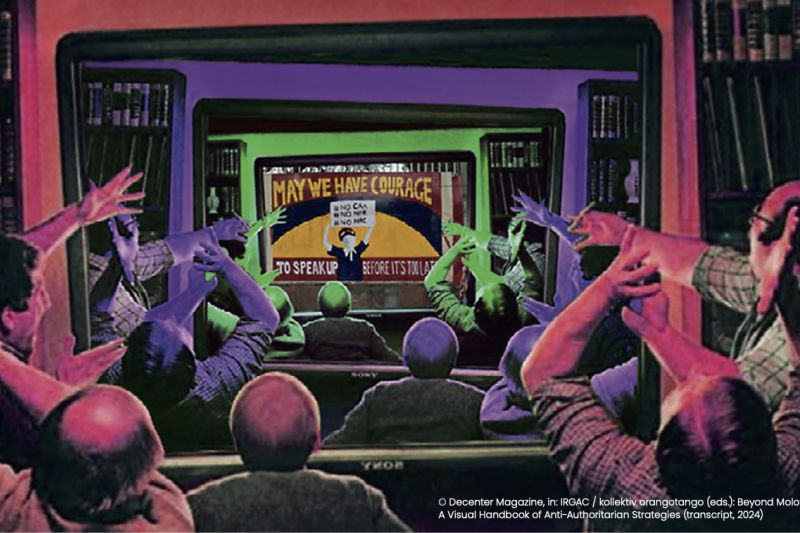The significance of gender and sexuality was already being discussed in the early studies on authoritarianism conducted by Critical Theory in the 1930s and 1940s at the Frankfurt Institute for Social Research (IfS) and in exile. In their investigations, the authors systematically surveyed attitudes toward sexual morality and gender images and understood them, in certain forms, as part of an authoritarian character structure. In the subsequent history of reception, however, these thematic dimensions of the studies were hardly taken into account. Today, in times of a renewed rise of authoritarianism, there are increasing references to gender theory in this forgotten legacy of the Frankfurt School.
Based on an ongoing research project on conspiracy theories, the lecture ties in with this rediscovery of the first studies on authoritarianism from a feminist perspective and asks about the possibilities and limits of their fruitfulness for a gender-theoretically informed understanding of current authoritarian tendencies. To what extent can the findings and considerations of critical-theoretical authoritarianism research help us to better understand the significance of gender and sexuality in and for the production of conspiracy theory knowledge? What might a timely critical-theoretical and feminist perspective on the manifestations of authoritarianism look like?
Newal Yalcin is a sociologist and research associate at the Frankfurt Institute for Social Research. In the research project “Connecting the Dots: Reconstructing the Social Production of Suspicious Knowledge,” she works on conspiracy theories from a gender theory perspective. Her work focuses on critical and feminist theory as well as right-wing and authoritarian movements.

Sarah Speck is a professor of comparative cultural sociology at the European University Viadrina in Frankfurt (Oder). Previously, she was a professor of sociology specializing in women's and gender studies at Goethe University. She is a member of the faculty of the Institute for Social Research and currently heads a research project on the production of conspiracy theory knowledge at the IfS. She has published on feminist social theory, couple relationships, masculinity(ies), division of labor, motherhood, and parenthood, among other topics. Her most recent book publications are: "Vom Umschlag der Emanzipation. Wandel und Fortbestand der Geschlechter- und Reproduktionsverhältnisse“ in the volume Kritische Theorie und Feminismus (ed. Karin Stögner and Alexandra Colligs, Suhrkamp 2022) and ”Im Schatten der Tradition. Eine feministische Geschichte des Instituts für Sozialforschung" (ed. Christina Engelmann et al., Bertz und Fischer 2025).
The CGC strives to make its events as accessible as possible. If you require assistance to participate in our event, please let us know your support needs by November 20, 2025, by emailing cgcentrum@soz.uni-frankfurt.de. We will then endeavor to reduce any barriers within the scope of our possibilities.
The room is accessible via elevators. There are two accessible toilets on the first floor (1.G40s and 1.G40h).
There is an all-gender toilet (1.G40n) with standing and sitting toilets on this floor. There is also a FLINTA* toilet (2.G40q) on the 2nd floor of the CGC.

